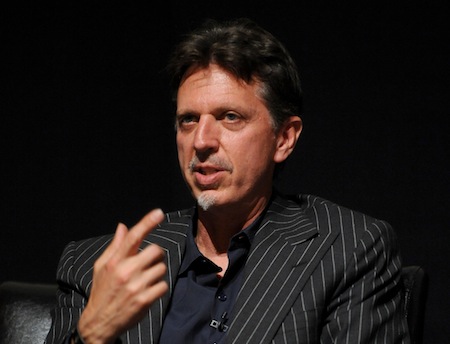Kring: Serialized TV ‘Less Pedantic’ Today #TCA15

The smarter way to stay on top of broadcasting and cable industry. Sign up below
You are now subscribed
Your newsletter sign-up was successful
Related: Complete Coverage of TCA Winter Press Tour
Tim Kring, executive producer of USA miniseries Dig, compared making serialized television in the current era of DVRs and digital viewing with doing so a decade earlier. The current creative climate came out favorably.
“What it’s allowed us to do is be less pedantic, less spoon-feeding,” said Kring, who talked about the challenge of having to write to viewers who may have missed previous episodes when he was executive producer of NBC’s Heroes. “It allows you to be subtler about how you move from one episode to another.”
Kring appeared in a panel featuring executive producers and showrunners from series made by studio Universal Cable Productions. He was joined by Natalie Chaidez of Syfy’s 12 Monkeys, Marti Noxon of Girlfriends' Guide to Divorce, Sean Jablonski of USA’s Satisfaction and Jeff Wachtel, UCP head and president and chief content officer of NBCUniversal Cable Entertainment.
Another advantage enjoyed by creators now is the trend among cable networks of ordering shorter seasons.
“For a storyteller to look at 10 or 12 or even eight [episodes] in terms of telling a story, especially a serialized one, you get to look at it more as a sort of longer overarching thing that doesn’t have to circle back on itself over time,” Jablonski said. “It also becomes more appointment television."
Structure has evolved, too. “Just the way we write television has changed a lot,” Noxon said. “It’s more cinematic. It’s more filmic. I think in some ways it moved into the sort of drama category of film. I definitely relate what we’re doing to the working-title romantic comedy. That’s our aspiration.”
The smarter way to stay on top of broadcasting and cable industry. Sign up below
Kring added, “Gone are the days of standing Tom Selleck up against a wall and writing four pages of dialogue.”
Chaidez credited Heroes, on which she worked with Kring, and Buffy the Vampire Slayer, on which Noxon worked, with taking “us back to serialized movie telling and the comic-book thing. I think that took the level of serialized storytelling, particularly in sci-fi, to another level.”
Introducing the panel, Wachtel announced that the studio had signed a deal with Charlize Theron’s production company Denver & Delilah.
